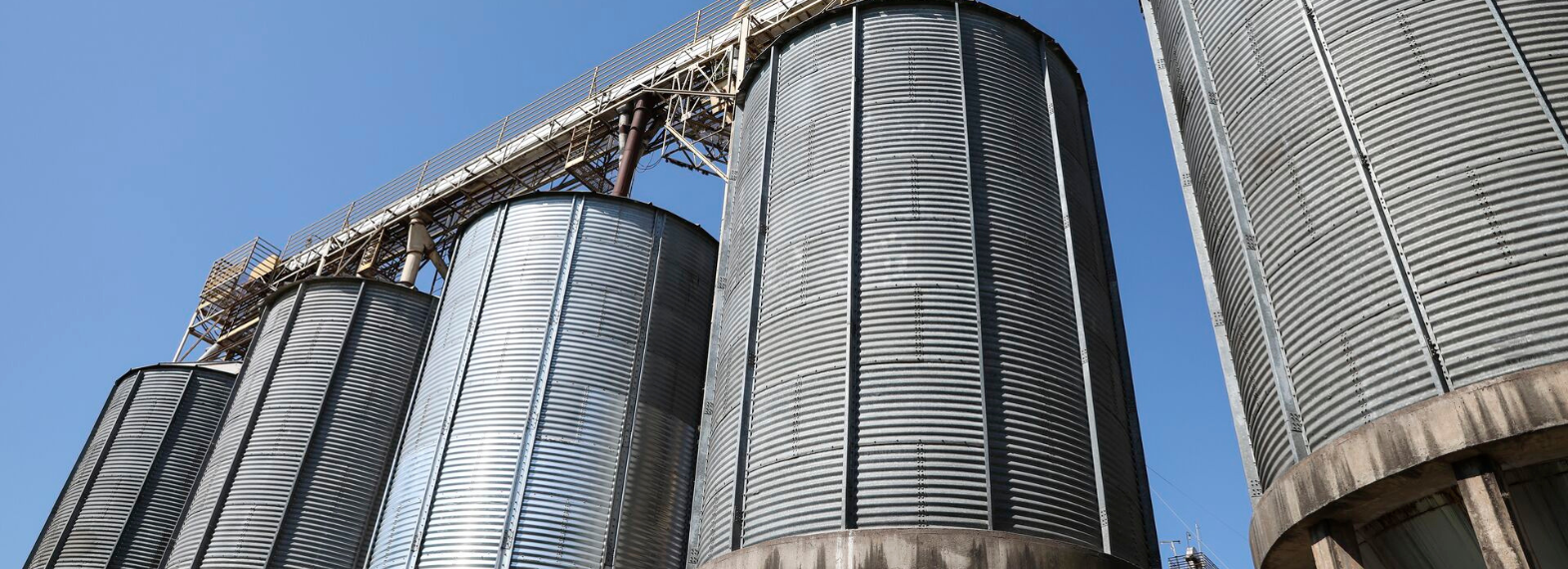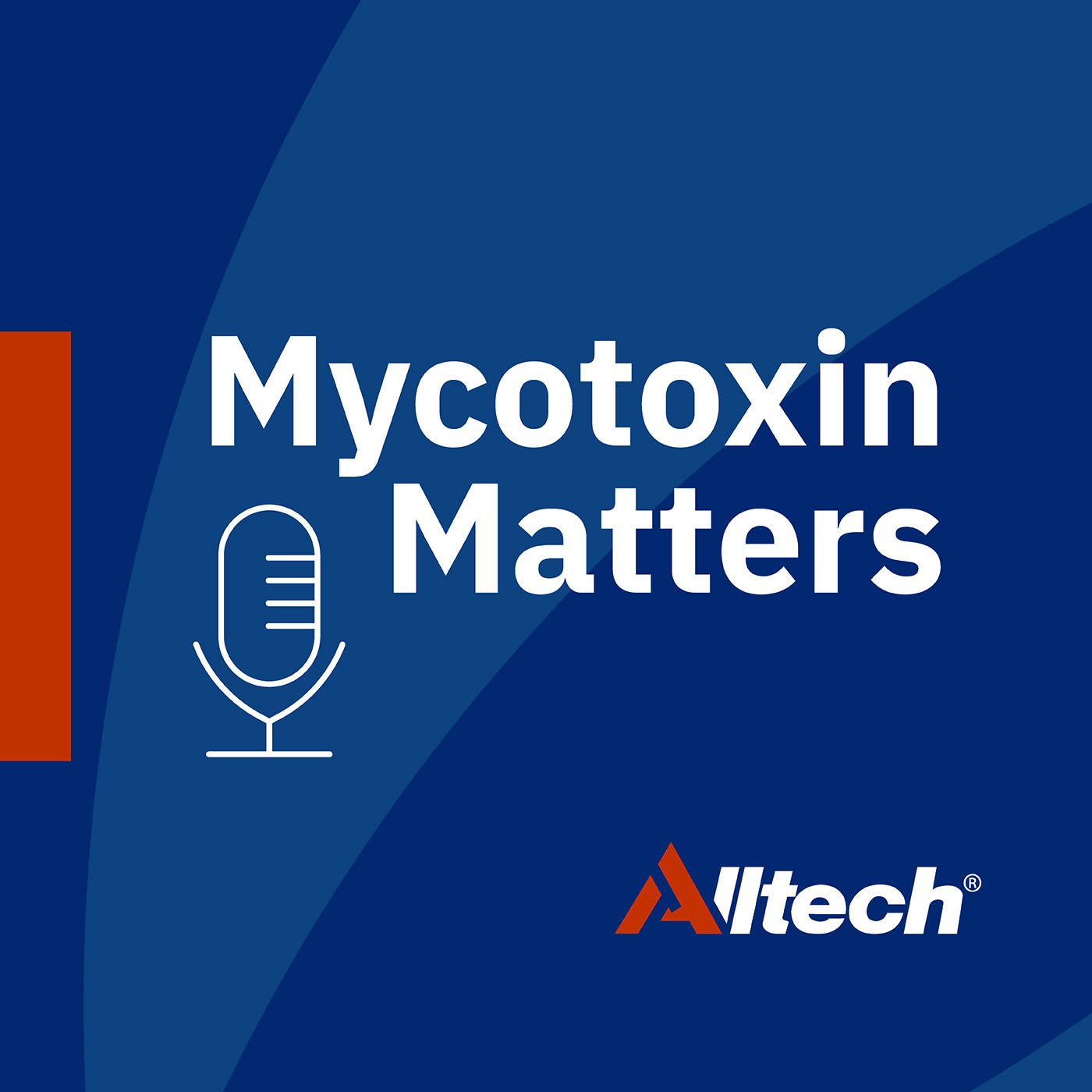Keep ahead of the threat
Stay up to date with the latest mycotoxin information by signing up to our newsletter

Alltech Feed Mill Workshop 2022: Sustainability, Feed Safety & More
Author: Chloe Chisholm, Digital Marketing Specialist: Alltech Mycotoxin Management
Click to listen to the Mycotoxin Matters podcast episode with Dr. Wilmer Pacheco and Josh Teulker, hosted by Martin Minchin, where they discuss the key themes from the Alltech Feed Mill Workshop this year. You can also hear the full audio or listen to the episode on Apple Podcasts or Spotify. You can find an edited transcript at the bottom of the page.
The Alltech Feed Mill Workshop is a unique educational experience designed to deliver expert knowledge in all aspects of feed milling.
The workshop was first held in 2019, hosted in partnership with Auburn University, as an in-person event at their world-class feed mill.
Due to COVID-19, the workshop was virtual for 2021 and 2022, but despite this, attendance has remained incredibly positive, and this year, we welcomed over 700 like-minded individuals. The agenda for the workshop was diverse, with topics such as biosecurity, new technologies, sustainability and education.
Education at the feed mill
Auburn University boasts an internationally recognised poultry science department and a comprehensive farm with the Charles C. Miller Jr. Poultry Research and Education Centre. Located on a 30-acre site north of the main campus, the centre is designed as an innovation hub and training centre for students and professionals across the sector.
The facilities at Auburn University provide a hands-on experience, allowing students to connect the dots between production, problem-solving and economics.
During this year’s feed mill workshop, we were joined by Dr. Charles Stark of Kansas State University to discuss training within the feed mill. He discussed two areas in particular: safety training and qualified individual training. He explained that the objective for every manufacturer “should be to create a culture of safety that exceeds leg requirement,” creating an overlap between safety culture and the law. Unsafe behaviour is a product of unsafe company culture, with the perception that behaving unsafely will have a short-term, positive benefit. Creating a work culture focused on safety is important to not only keep employees safe and keep operations moving but to ensure the feed mill is running efficiently.
Dr. Stark continued, saying that FSMA Qualified Individual Training ensures the trainee “has the education, training or experience necessary to manufacture, process, pack or hold safe animal food as appropriate to the individual’s assigned duties.” This training is extremely important to allow the feed mill’s workforce to fulfil their pivotal role in the feed supply chain by producing high-quality feed.
Importance of feed mills in the food chain and labour availability
While the feed milling industry may not be the most glamorous, its importance cannot be diminished. It is indisputably true that the feed sector is pivotal in food safety, and the importance of this work needs to be passed down to the workers to retain and inspire them.
Furthermore, additional strain will be placed on the feed mills to keep up with the rapidly growing population, which is expected to increase the consumption of animal products by 70% in 2050.
Sustainability
This projected consumption increase further necessitates the conversation around sustainability. During this year’s feed mill workshop, we were joined by Lara Moody from the American Feed Industry Association (AFIA), who discussed sustainability in the food supply chain and the role of the feed mill. Citing a global study from Simon, Kucher and partners, she stated, “sustainability will continue to become the expectation rather than the exception.”
When reviewing greenhouse gas (GHG) emissions, they can be grouped into three categories:
- Scope 1: Direct emissions from owned or controlled sources.
- Scope 2: Indirect emissions from electricity, steam, heating and cooling generation bought and consumed by a reporting organization.
- Scope 3: All other indirect emissions in a company’s value chain.
Scope 3 emissions can account for 90–95% of a food manufacturer’s emissions. In relation to feed, the total GHG emissions related to meat production (in million tonnes CO2-equivalents) coming from feed is 63% for pigs, 42% for cattle and 78% for chickens. Increasingly, food producers are setting targets for themselves to lower their emissions across the supply chain, directly impacting the feed mill, its operations and sustainability procedures. The bottom line here is that feed is key to the outcome that downstream stakeholders are looking for when setting their sustainability goals.
Energy management at the feed mill
During the feed mill workshop, Dr. Stark also gave a presentation on energy management at the feed mill. Reducing energy use is a key sustainability measure with added positive financial implications.
As well as reducing carbon emissions, energy management in a feed mill facility is essential to improving your bottom line and increasing productivity and market competitiveness. Not only this, but it will also lessen the impact and protect your business against the huge increases in plant running costs.
Energy audits can help establish areas for improvement, such as:
- Electricity, boiler fuel and vehicle fuel, which incur significant costs in production and delivery.
- High-efficiency motors.
- Motor shut-off periods during non-use.
- Correct sizing.
- Boiler steam system.
- Insulated pipes.
- Steam traps.
- Optimised deliveries to reduce cost per ton.
- Energy-efficient lighting.
- HVACs properly serviced.
Acting around these items will, in turn, reduce the carbon footprint of the feed being handled and processed through the system, which passes down the chain to reduce the footprint of the end protein.
The feed mill workshop this year featured some key themes and fantastic speakers. Sustainability and education will likely remain important topics as we look to the future and work towards a Planet of Plenty™.
If you were unable to watch the workshop live, both days were recorded and are available to watch using the links below:
The workshop will return in 2023, with details due to be announced early next year, so make sure to follow our LinkedIn page for updates and subscribe to our newsletter!








